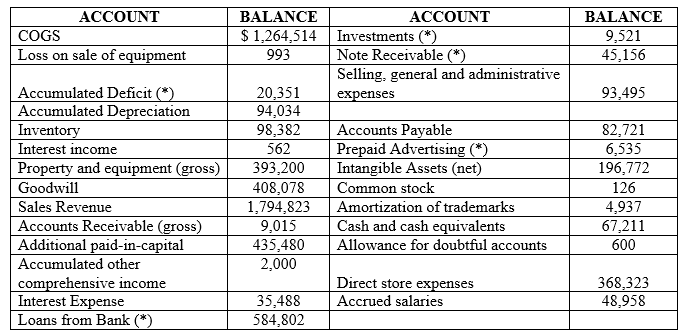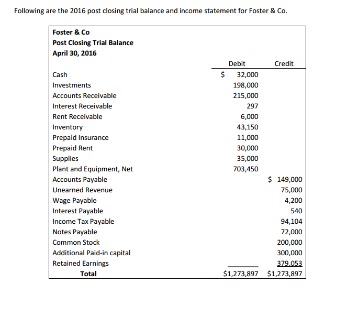Corporation Calculator: S-Corp Savings

The compensation is subject to payroll taxes and can distribute the remaining income as dividends. Using the calculator, you can assess the potential tax savings of a Single Member LLC owner electing S Corp treatment, as it allows for reduced self-employment taxes. However, it’s important to meet the requirements of maintaining payroll records, paying a reasonable salary, and complying with IRS and state guidelines to enjoy the benefits of S Corp taxation. Utilizing a tax calculator helps simplify the process of understanding and comparing the tax implications of S Corps and LLCs, aiding in informed decision-making for your business. Conversely, other types of federal tax entities, such as S corporations, avoid this double taxation. This is because S corporations work under a concept called pass-through taxation.
Select an answer for each question below and we will calculate your S-corp tax savings
The bottom line is that S corporation distributions are not subject to self-employment taxes and may even be tax-free, resulting in a low S corp tax rate. They can then take additional profits as distributions from the business, which are tax-free until they exceed the owners’ stock basis in the company. Stock basis, or equity basis, is basically an owner’s investment in a company calculated according to the tax rules that apply to the entity. Calculate your S Corporation’s net income by subtracting business expenses from total revenue.

Reasonable Salary
The IRS looks to make sure that the S corp is paying its owners reasonable salaries. If a company fails to do so, it may be denied S corp status, have to pay a fine, and/or be required to pay back taxes. Many entrepreneurs set up LLCs because they are often more affordable than corporations with some liability protection. For instance, LLC finances are treated as separate from individual assets.
Entity Types
We’ve not only seen that S Corps offer tremendous tax advantages, but do so with noteworthy costs and complexity. While we hope this guide has created some excitement to speak with your tax professional, you should always discuss the downsides with them as well. LegalZoom provides access to independent attorneys and self-service tools. LegalZoom is not a law firm and does not provide legal advice, except where authorized through its subsidiary law firm LZ Legal Services, LLC.

State level business entities entail the classification of businesses within a specific state. The type of entity that a business registers as (such as a limited liability company, partnership, or corporation) influences the taxation and legal regulations of that business. https://www.business-accounting.net/how-to-calculate-building-depreciation/ An S Corp vs. LLC tax calculator is a helpful tool for comparing the tax implications of these business structures. In an LLC, the owner pays income tax and 15.3% self-employment tax on the business income, while an S Corp owner pays themselves a salary and distribution.

Use of our products and services is governed by our Terms of Use and Privacy Policy. However, it’s important to remember that not all companies are eligible to be S corporations, and certain shareholder limitations need to be considered. Whether you’re curious about establishing an LLC or launching an S corporation, starting a business is an exciting undertaking full of learning experiences. You can use this guide to sort out the differences between LLC vs. S corp to make the best decision for your business. LLCs and S corporations are different aspects of business operations but are not mutually exclusive. Use this guide to learn more about the difference between an LLC vs. an S corporation.
Federal income tax applies to your salary, in addition to employment tax. As a self-employed individual, navigating the world of taxes can be challenging. However, there are strategies that can help you maximize your tax benefits. One powerful approach is to structure your business as an S Corporation, which offers several advantages, https://www.online-accounting.net/ including lowering your annual tax bill. Dividends have their own tax rate, which may be either lower or higher than the tax brackets for income received as salary. The corporation can also repay an owner for an investment they have made into the company, in which case this is not considered a dividend or salary.
- The default LLC tax status is better for small businesses that reinvest profit to grow their business.
- Instead, it should be kept within your business records and updated as necessary.
- There are distinct advantages and disadvantages to establishing and operating a limited liability company.
- Remember, however, that in order to elect S Corporation status your business must follow certain eligibility requirements.
That depends on how much money he spent on costs like his LLC formation fees and payroll expenses — plus how much time he spent dealing with the paperwork. At the end of the day, all that might well outweigh the $1,530 he saved. In fact, a business can only elect an S corp after they’ve first registered as an LLC or other qualifying corporation. Think through your specific needs related to ownership structure, management preferences, taxation, liability protection, and business objectives.
This can be a significant advantage for small businesses, as it simplifies tax reporting and can result in tax benefits and lower overall tax liabilities. One of the main differences between an S corp and a limited liability company is the treatment of self-employment taxes. With an S corp, owners can pay themselves a salary subject to payroll taxes, while the remaining profits are distributed as dividends and not subject to self-employment taxes.
An LLC is a business structure where taxes are passed through to the owners. An S corporation is a business tax election in which an established corporation passes taxable income to shareholders. S corporations must be an existing business entity 4 types of financial statements that every business needs such as an LLC or C corporation to receive the tax status approval. So, they can be more cumbersome to establish and operate than sole proprietorships or partnerships. Individual income tax brackets determine the rate at which income is taxed.